1351 – Herder's Hut from Axalp (Brienz), Berne, 1520
This herder’s hut from the Axalp is a rare example – it is half a millenium old.
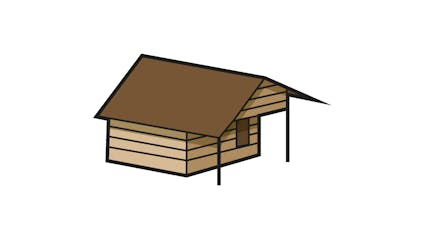
Rare Survivor of the Ages
Wind and weather, avalanches and rockfalls, human and animal occupation – these factors place severe demands on alpine buildings at high elevations. Over the long term only a few of them have survived these conditions. This herder’s hut from the Axalp is a rare example – it is half a millenium old!
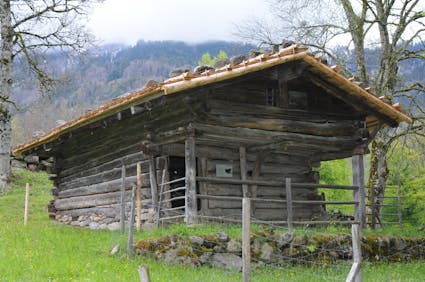
One-Room Hut
There was no internal division; the open hearth with the cheese cauldron on its swinging arm (known as a turner), all utensils for milking and making cheese, for splitting firewood, the herder’s bunkroom extending beneath the roof out over the entry – everything had to be contained in a single space. This simple building type was widespread on the alpine pastures of the Bernese Oberland.
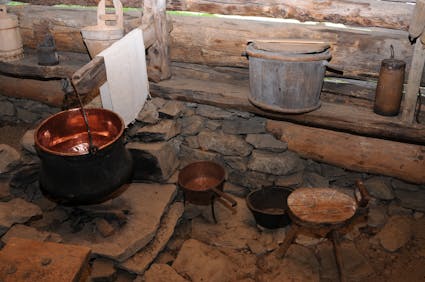
Stop and Go
The following feature is typical for this kind of herder’s hut: a covered work area right by the entrance serves as a milking shed under the protruding roof gable. The herder can open a wooden gate on one side and admit one cow at a time to the shed. The cow stands there while the herder does the milking. He carries the milk into the hut and then opens a gate on the other side of the shed to let the cow out into the pasture. This milking shed is highly practical in respect both to its construction and to the herder’s work.
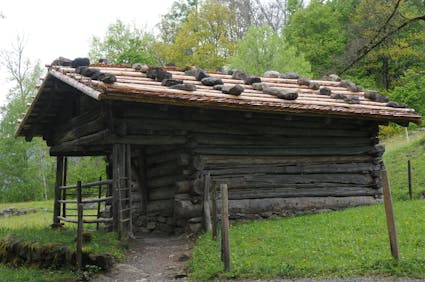
Twins
Two such alpine huts stood on the "Litschentellti" (Litschen valley) Alp at 1850 metres (6070 feet) above sea level, a part of Axalp in the municipality of Brienz. One hut was in squared timber construction from 1503 and another more antiquated-looking but younger one was in round log construction from 1520. The first was renovated in situ and the second was relocated to the Museum.
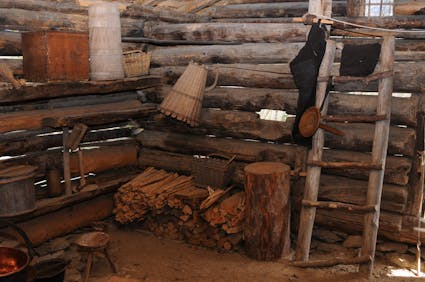
Ballenberg
Swiss Open-Air Museum
Museumsstrasse 100
CH-3858 Hofstetten bei Brienz
Opening hours Administration
3 November 2025 to 8 April 2026
From Monday to Friday
8.30 am to 11.30 am
1.30 pm to 4.30 pm
Opening hours
9 April to 1 November 2026
10 am to 5 pm daily